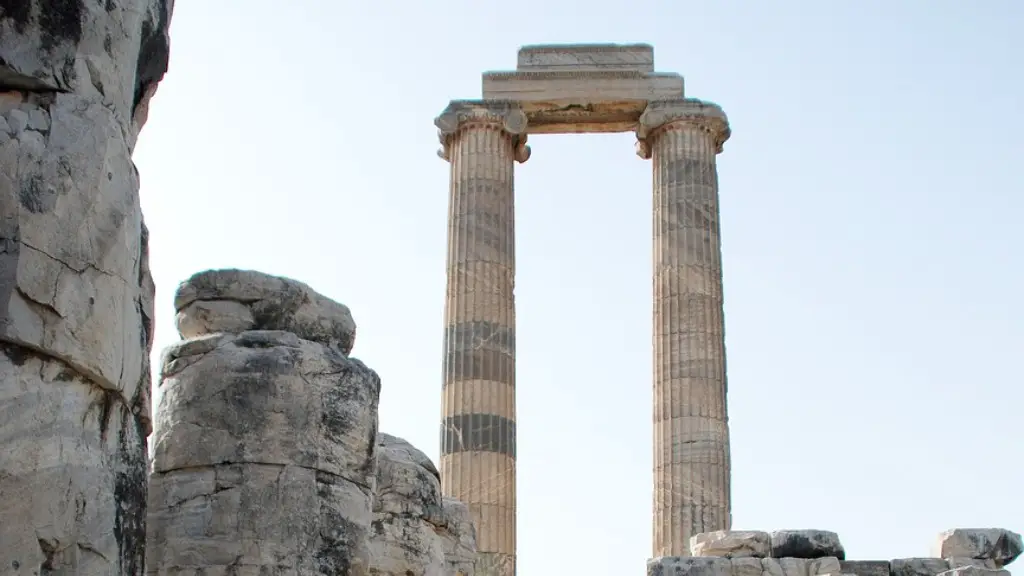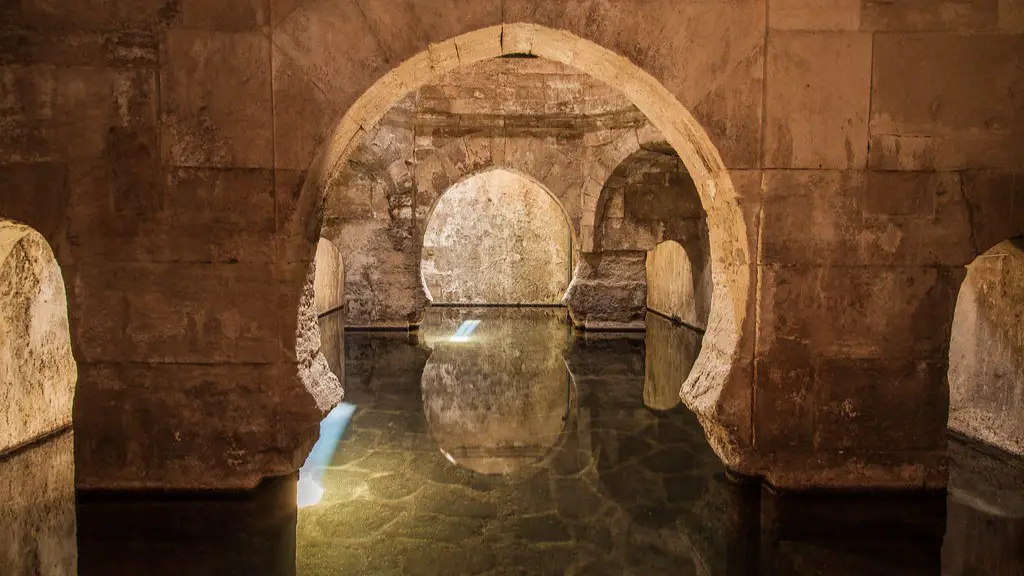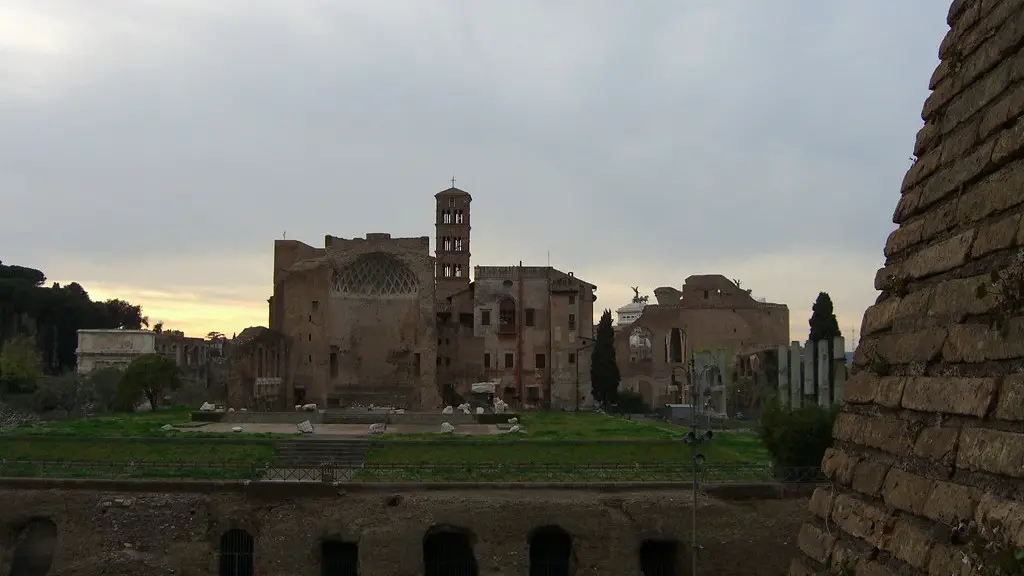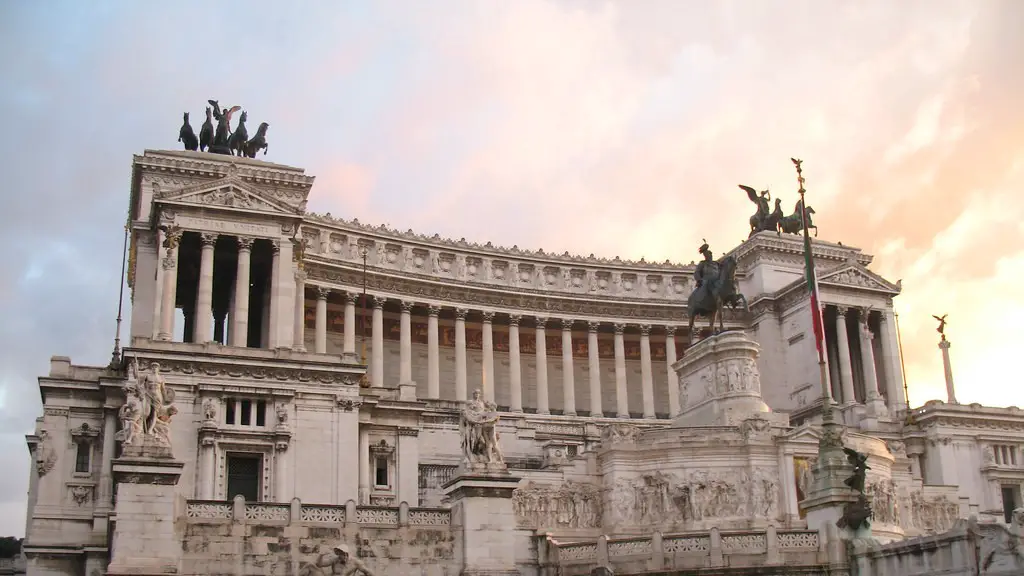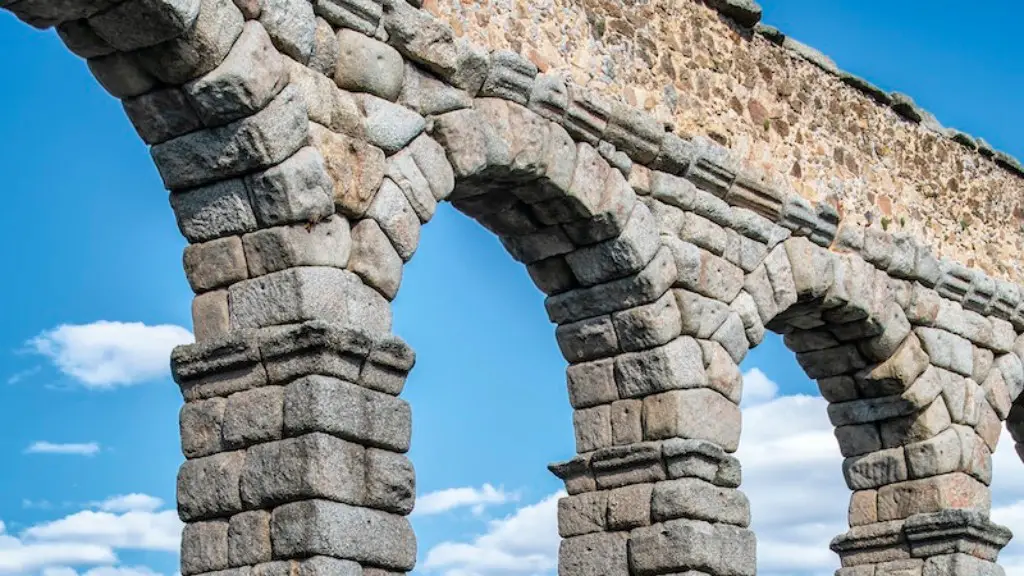Rise of the Plebeians
The plebeians were the lower class of Ancient Rome, in contrast to the upper class of patricians. The plebeians were seen as second class citizens in Rome and were mostly slaves, craftsmen or farmers. They had few legal rights or influence and were often heavily taxed. However, the plebeians played an important role in Ancient Roman society and politics.
The plebeians were pivotal in providing the labour necessary to keep the Roman economy going. They provided the manpower for the army, farmed the land, raised the food to feed the city and kept its infrastructure running. It was the plebeians who were responsible for constructing the many temples and monuments of Ancient Rome such as the Colosseum, the Pantheon and the Forum. Without the plebeians, it is unlikely that Ancient Rome would have grown and prospered as it did.
In terms of politics, the plebeians played an important role in pushing for reform. Over time, they demanded more rights and a greater say in how the Roman Republic was run. In 494BC, the plebeians demanded an independent body of representatives to represent their interests in the Roman Senate. This body, known as the Tribune of the Plebs, was granted and the plebeians were finally given a voice in how Rome was run.
In time, the plebeians were increasingly successful in pushing for greater rights, rights enshrined in the Twelve Tables of Law. These laws protected their rights in the fields of marriage, debt and civil law, and they could now be protected in court. Over the centuries, the plebeians succeeded in gaining greater rights, such as the right to vote and the right to hold certain public office, ending centuries of discrimination.
The plebeians were also pivotal in the fall of Ancient Rome. As their power and influence grew, Roman society began to fracture. Divisions between the patricians and the plebeians eventually led to civil wars, which ultimately led to the fall of the Roman Republic. While the plebeians may not have had the political power of the patricians, their actions helped bring about the end of the Roman Republic and eventually the rise of the Roman Empire.
Social Structures
An important part of understanding the role of the plebeians in Ancient Rome is to understand the social structures of the period. In Ancient Rome, the upper classes were comprised of the patricians, or members of the ruling elite, while the lower classes were made up of the plebeians, or common people. This hierarchy was strictly enforced and was largely stratified by wealth, with the patricians holding much of the wealth and power.
The plebeians were at the mercy of the patricians and had few rights. Under the law, they could not vote or hold public office, and were heavily taxed and exploited by the ruling elite. Yet despite the harshness of their position, the plebeians played an important role in Ancient Rome. They provided the labour and resources to keep the Roman economy going and helped build the city’s many monuments and achievements.
This stratification of Ancient Roman society changed over time as the plebeians fought for greater rights and privileges, particularly in the fields of law and politics. Initially seen as a matter of survival, the fight for greater rights would eventually become a matter of principle, as the plebeians believed in the idea of equality. Ultimately, it was the success of this struggle which would lead to the fall of the Roman Republic and the rise of the Roman Empire.
Economic Impact
The plebeians were not only important to Ancient Rome’s political development but to its economic development as well. The plebeians provided the manpower to farm the land and to build the many monuments and achievements of Ancient Rome. Without the plebeians, it is unlikely that Ancient Rome would have been able to reach the level of success that it did.
The plebeians were also essential to the Roman economy. They provided the military power that conquered foreign lands and brought wealth and resources to the Roman Republic. The plebeians also provided the labour necessary to keep the infrastructure running, from building roads and bridges to supplying food and maintaining the many public works projects of the period. Without their efforts, it is unlikely that Ancient Rome would have achieved the level of prosperity it did.
The plebeians were also key to the introduction of new technology and innovations in Ancient Rome. Without the plebeians, it is unlikely that the Romans would have been able to develop the advancements in engineering and science that they did. The plebeians were largely responsible for the revolution in agriculture and animal husbandry, which had a significant impact on the success of the Roman economy.
The Role of Slaves
An important part of the plebeian class in Ancient Rome were the slaves. Slaves played a significant role in Ancient Roman society and provided a form of cheap labour, freeing up the plebeians to pursue other activities. Slaves were often used as servants, labourers or housekeepers, and in some cases, as craftsmen or artists. The slave population in Rome was large, and by the time of the Roman Republic, it was estimated that slaves comprised up to one third of the population.
Slaves had few rights and were subject to their masters’ will but, at the same time, they were integral to the success of the Roman Republic. Slaves were used to build the many monuments of Rome and to provide the labour for its farms and mines. In some cases, slaves even held positions in the government, performing tasks such as keeping the census or administering in the courts.
While the role of slaves in Ancient Rome cannot be denied, they were often treated badly and, in some cases, subjected to cruel punishments. Yet despite this, the slaves continued to play an important role in the Roman Republic and their contributions should not be overlooked.
Change Overtime
The role of the plebeians in Ancient Rome changed drastically over time. Initially seen as second class citizens and largely disenfranchised, the plebeians eventually succeeded in gaining greater rights and privileges. This culminated in the establishment of the Tribune of the Plebs in 494BC and eventually, in the Twelve Tables of Law, which provided protection and rights for the plebeians.
Over time, the plebeians achieved greater equality and even held certain public offices. This change in status culminated in the Civil Wars which ultimately led to the fall of the Roman Republic and the rise of the Roman Empire. The plebeians, while not the primary cause of the fall of the Republic, played an important role in facilitating it.
Political Impact
The plebeians of Ancient Rome were also pivotal in terms of politics. Initially, they had little political power and were largely disconnected from the ruling elite. Despite this, the plebeians still demanded greater rights and a say in how the Roman Republic was run. This push for greater rights eventually led to the establishment of the Tribune of the Plebs and the Twelve Tables of Law.
The plebeians also played a role in pushing for greater reform in the Roman Republic. In time, the plebeians began to become increasingly dissatisfied with their status, and the long-term implications of this dissatisfaction played a role in the eventual fall of the Republic. Ultimately, the plebeians were the key force in pushing for greater reform and the change that eventually brought about the fall of the Republic.
Modern Relevance
The role of the plebeians in Ancient Rome is still relevant today. Despite the many centuries that have passed, the lesson of their struggle for equality and justice is still fresh in the minds of many. It is a lesson of resilience and hope in the face of seemingly insurmountable odds. It is a lesson of understanding the importance of fairness and justice and one that still resonates strongly today.
The plebeians of Ancient Rome can be seen as an example of what can be achieved through courage, determination, and the power of collective action. Their example is one which we can still learn from and strive towards today, as we seek to create a society where all people are given a voice and treated with respect and fairness. The power of the plebeians of Ancient Rome still lives on, and it is one that still resonates strongly today.
